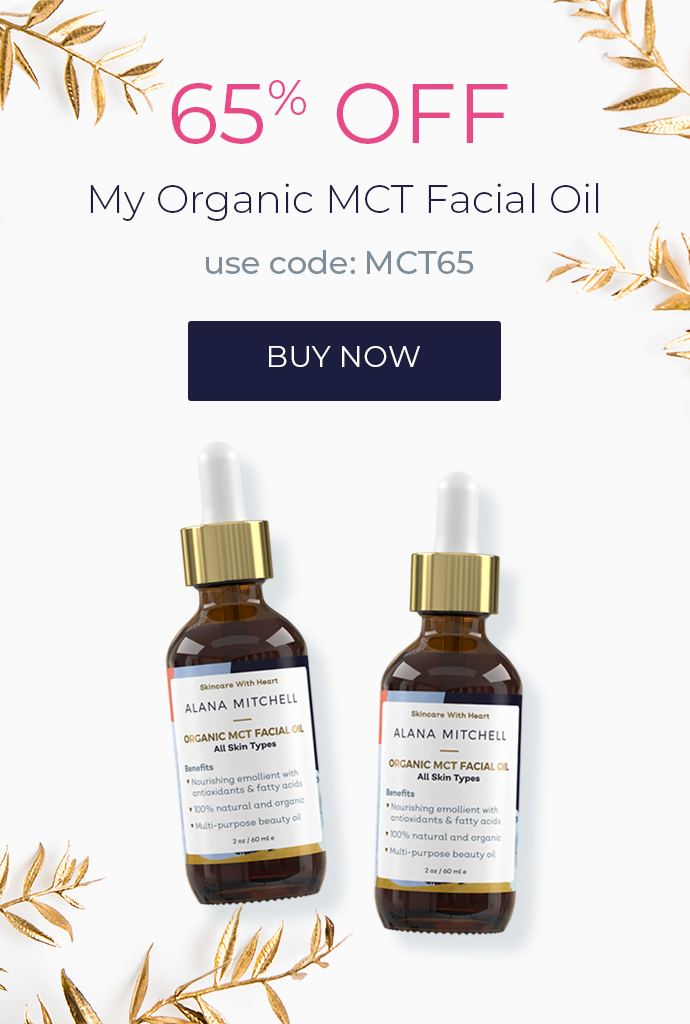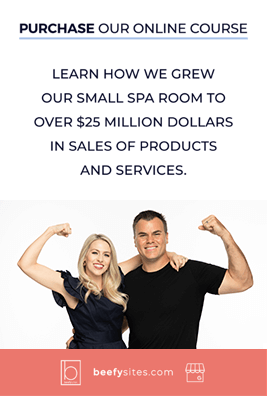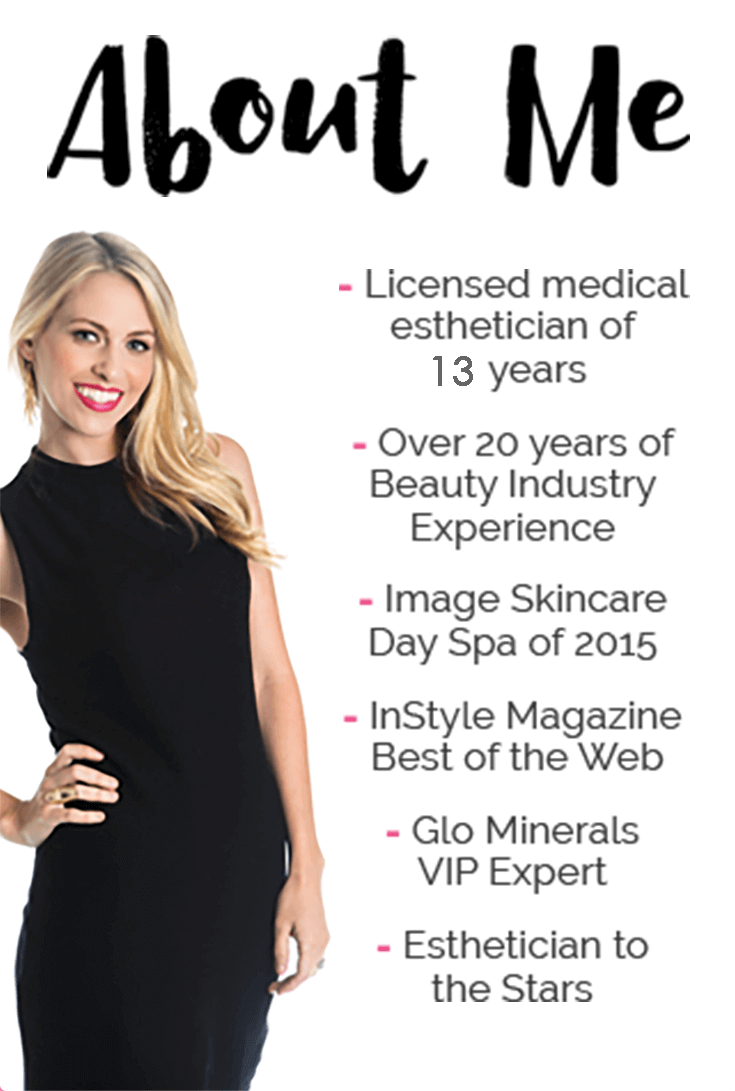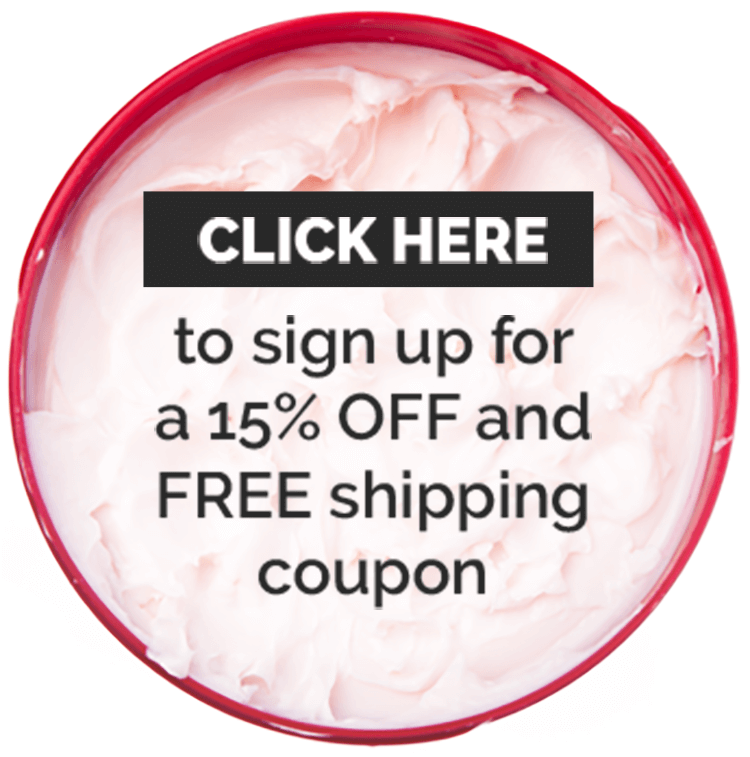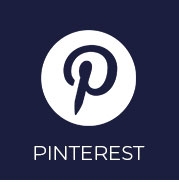What Should You Be Using In Your Skin Care Routine?
Take my quiz and get personalized recommendations from a
licensed esthetician!
Meals on Heels: My Guide to Skincare While Breastfeeding
Parenthood is one of life's greatest joys, but it can also be overwhelming and stressful.
As a mom of two young boys, I get it.
But we should remember: To take care of our children to the best of our ability starts with taking care of ourselves first.
There's no reason why you should feel guilty!
So, let's discuss mommy skincare and how to avoid retinol breastfeeding.

As you can see, this is something that a lot of women are doing!
Many new moms (and moms-to-be) want to maintain a skincare regimen so they can love the way their skin looks and feels.
However, there's a lot of confusion and uncertainty surrounding the safety of ingredients and products.
Today, I'm going to explain which ones are good, and the ones that aren't so good, and how you can best take care of you and your baby's skin.
Let's get pumped! (Was that a bad joke?)
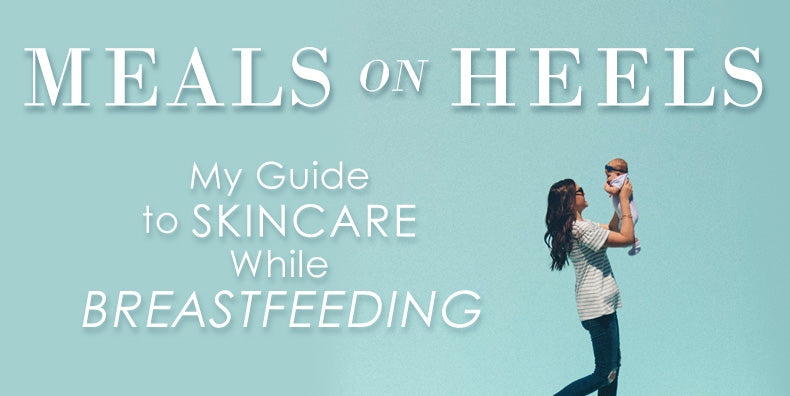
*Disclaimer*
If you or your baby are unable to breastfeed, or you're opting for formula, these tips will also be useful for pregnancy!
While I'm a licensed esthetician, I'm not a medical practitioner.
For the final say in using these ingredients, or for specific questions, please refer to your dermatologist, pediatrician, or OB-GYN.
Why Does It Matter?
If you're like me, you were thinking about taking that first sip of iced coffee (or wine) while you were still recovering from labor and delivery in the hospital.
It's tough to quit the things you love for 9 months!
But not so fast...
While you most certainly deserve a treat after bringing a new life into the world, you still need to watch what goes in and on your body if you plan on breastfeeding.
So, why can't you use retinol while breastfeeding?
I'm sure your doctor has told you this before, but anything you eat or put on your skin can be passed to your baby through your breastmilk.
This is why you should be consuming a diet rich in vitamins and minerals and not smoking, drinking, or using drugs.
And, while chemicals in skincare products aren't all toxic, they can seep into the bloodstream and enter your breastmilk that way.
In extreme cases, this can cause birth defects and allergies.
With skin-to-skin contact, a perfume or lotion you might be wearing, for example, can rub against your baby's skin and may cause irritation, sensitivity, or an allergic reaction.
To avoid potential problems, the first step is to always read the label.
If you're still uncertain about the ingredients, ask your doctor, or find an alternative product.
When you're in doubt, it's better to be safe than sorry.
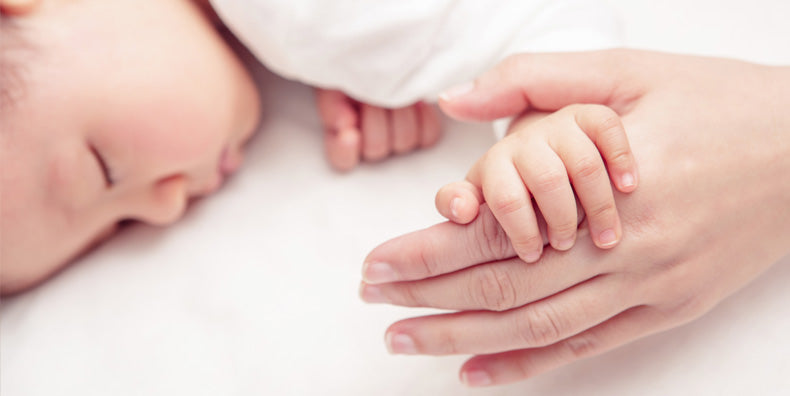
Benefits of Nursing
- Burns extra calories (you can lose pregnancy weight without stepping foot on a treadmill!)
- Protects your baby against illness and lowers their risk of diarrhea and vomiting, ear infections, asthma, lower respiratory infections, type 2 diabetes, sudden infant death syndrome (SIDS), and leukemia and obesity during childhood
- Conveniently packaged - you can feed them on the go!
- Releases oxytocin, a hormone that helps breastmilk flow and increases feelings of love, nurturing, and a strong emotional bond
- Saves time (you don't have to mix formula, warm bottles, sterilize nipples, etc.)
- Meets your baby's specific needs as they get older
- Lowers your risk of type 2 diabetes, certain types of breast cancer, and ovarian cancer
- It's always at the right temperature
- It's good for the environment! It's a renewable resource and doesn't require you to throw anything away
Your Baby's Skin
We all strive to have skin as soft and smooth as a baby's.
But since it's brand-new, theirs is the most sensitive as well.
They're more prone to:
- Rashes
- "Baby acne"
- Mild allergic reactions, which may look like small red bumps
- Irritation
- Eczema
- Milia
- Dryness
When it comes to caring for their skin, "less is more" is a good way to go!
Generally, you don't need to use cleanser, lotions, or creams.
Babies don't sweat, get dirty, or shed skin cells the way that we do.
Here are some recommendations for taking care of your angel's skin!
- Limit baths. For the first month, a sponge bath 2-3 times a week is plenty. When you decide to do a tub bath, just use water (or a mild, scent-free cleanser if necessary) 2-3 times a week. Bathing too frequently removes natural oils, which can dry out skin and exacerbate eczema.
- Wash clothes properly. Soft materials, preferably cotton, are best. After buying new clothes, wash them first. Use baby-friendly laundry detergent, which will be free of fragrances and dyes. Wash their clothes, bedding, and blankets separate from the rest of the family.
- Physical touch is very beneficial! Your touch is soothing, nurturing, and critical to their development. Newborns, in particular, cry less and sleep better. Who doesn't want that?!
- Don't use baby powder. Despite what advertisements might say, your baby doesn't need baby powder. In fact, it does more harm than good. To prevent a diaper rash, change diapers frequently and let the area completely dry/air out for a minute or two between changes. If your baby has a diaper rash, ask your pediatrician for an ointment they recommend.
A-OK Ingredients
Lactic Acid
I first heard about lactic acid buildup in muscles in middle school gym class.
Yes, this is the same thing!
An alpha hydroxy acid (AHA), lactic acid is great for anti-aging and restoring a soft and smooth texture to sensitive skin types.
It's a mild exfoliant that gently encourages cellular turnover to smooth away fine lines and improve skin tone.
Derived from milk, fruit, vegetables, and other plants, lactic acid is used in cleansers, moisturizers, serums, and chemical peels.

Vitamin C
It's not just in orange juice!
Not only is this ingredient good at combating colds; it has a ton of benefits for your skin.
Vitamin C is an excellent anti-aging and damage-repairing ingredient as it boosts collagen production, brightens dark spots, and fights free radical damage.
You can find it in serums and moisturizers.
Personally, I loved it (and still do) to keep my complexion bright and glowing.
Vitamin C comes in different forms and derivatives, including:
- Magnesium Ascorbyl Phosphate
- Ascorbyl Glucosamine
- Tetrahexyldecyl Ascorbate
- L-Ascorbic Acid
- Sodium Ascorbyl Phosphate
Probiotics
I'm sure you've heard that probiotics are good for your gut, but what about your skin?
Many skincare products - cleansers, moisturizers, and even liquid foundation - are touting "probiotic technology."
But what is it?
Such formulas include bacteria fragments or metabolites, the "soup" surrounding grown bacteria cells, according to Dr. Whitney Bowe.
Their purpose is to balance "good" and "bad" bacteria and help with acne, dry skin, rosacea, and eczema.
Personally, when I was breastfeeding, I used a probiotic cream by Epicuren and loved it! (You can find it below.)
Probiotics used in skincare go by these names:
- Acidophilus
- Bifida Ferment Lysate
- Lactobacillus Plantarum
- Enterococcus Faecalis
- S. thermophiles

Ingredients That Are a Big No-No
Retinoids
Derived from vitamin A, this skincare ingredient does it all!
It's particularly known for its anti-aging and anti-acne benefits.
I definitely recommend it...after pregnancy and nursing are over, as it can cause birth defects.
Retinoids can sneak up on you, so use caution.
It can be used with products that would otherwise be deemed as safe.
For example, a lot of glycolic exfoliants/scrubs have added retinoids.
Look for these names on the product packaging:
- Retinol
- Retinoic acid
- Differin (adapalene)
- Retin-A, Renova (tretinoin)
- Retinyl linoleate
- Retinyl palmitate
- Tazorac and Avage (tazarotene)
Parabens
Parabens are a common preservative in many personal care products, including shampoos, conditioners, body washes, and lotions.
Whether you or your baby are using products with parabens, trace amounts can be absorbed into the skin.
Babies can be sensitive to parabens.
In extreme cases, it can affect their endocrine system.
While the effects of parabens have been widely debated and are still under investigation, I have chosen to make my skincare line paraben-free.
Parabens can be easy to find, as they usually appear in the ingredient's name.
Here are some examples:
- Propylparaben
- Ethylparaben
- Butylparaben
- Isopropyl
- Isobutyl
- Methylparaben
Chemical Sunscreens
The active ingredients in chemical sunscreens absorb the sun's UVA and UVB rays, then break down and release heat.
This protects you against sunburn and sun damage.
While you should be wearing sunscreen with SPF 30+ every day, grab a mineral sunscreen while you're nursing.
These sit on top of the skin and block those bad rays!
I would opt for a formula with zinc oxide or titanium dioxide.
Chemical sunscreens may cause an allergic reaction and disrupt estrogen and hormone production.
They've also been found in breastmilk.
Be on the lookout for these ingredients used in chemical sunscreens:
- Oxybenzone
- Octinoxate
- Avobenzone
- Octisalate
- Homosalate

Other Tips and Tricks
Besides using certain skincare ingredients and products, there are other ways to care for your complexion while feeding your baby.
(These should be easy to remember - I'm sure you've heard of them before you had your baby!)
- Use fragrance-free, non-comedogenic formulas. This will minimize the chances of your lil nugget developing an allergic reaction or rash. If you want to be extra careful, you can use skincare products specifically made for babies. This will decrease the likelihood of something irritating being transferred to their skin during contact.
- Drink plenty of water. Water has a hydrating and plumping effect on the skin. If we're dehydrated, our skin can look dull, and fine lines and wrinkles will become more apparent. Dehydration can also contribute to fatigue. An easy way to remember to drink up is bringing a reusable water bottle with you wherever you go, or even downloading an app that will remind you to drink water.

- Nourish your skin from the inside out. Eating a well-balanced diet maintains your energy level, keeps your hunger in check, and helps with the quality of your breast milk. Healthy doesn't have to equal boring or bland! Berries, for example, are a great way to get antioxidants, which keep free radicals from damaging your skin.
- Don't abandon your skincare regimen. I get it! Babies require almost constant care and attention; the last thing you want to worry about at the end of the day is your skin. But keeping up a skincare regimen can stop problems before they start and maintain your skin's health and appearance. As I always say, prevention is better than treatment! You may spend more time correcting a problem than preventing it from happening in the first place.
- Don't be afraid to ask for help. If you haven't already figured it out, having a baby is hard work. As the old saying goes, "It takes a village to raise a child." You don't have to do it alone! I'm here to tell you that it's OK to ask for help. It does NOT mean you're a "bad mom," and you shouldn't feel guilty. If relatives or friends offer to cook a meal or babysit, take them up on it! You can run errands, shower, or even just take a nap. Which leads me to the next tip...
- Rest (when you can). I know it's not always possible to sleep when your baby sleeps, but try to sneak in a nap! In a study conducted by NASA, tired military pilots and astronauts who napped for 40 minutes had a performance increase of 34% and were 100% alert upon waking up. If you're worried that a nap might interfere with your nighttime sleep schedule, you could always meditate or lay down and listen to some soothing music.
You might be feeling a bit overwhelmed right now with all this info.
Don't worry, I've got you covered!
Keep on scrolling for safe and effective skincare products you can use while breastfeeding.
The best part?
You don't have to spend hours going from store to store or scouring the Internet; I've got it all right here for you!
If you don't want to give up your brick and mortar shopping spree, you can also print out this article and take it with you.
![]()
![]()
Alana Mitchell Clear Collagen Peel-Off Masque
Breastfeeding-Friendly Brands
I'm proud to offer these skincare lines that are safe to use while breastfeeding (and deliver results, too!).
I've italicized and bolded the brands that do carry vitamin A products - please make sure to avoid these by reading all of the ingredients!
- Epicuren
- Eminence Organics
- Ilike Organic Skin Care
- Bioelements
- Image Ormedic Line
- Image Vital C Line
- Coola
- 302 Professional Skincare
- Rhonda Allison
- GloMinerals
- La Bella Donna
- Youngblood Mineral Cosmetics
Happy shopping!
Final Thoughts
When nursing, the last thing you want to have to worry about is whether your skincare products might affect your little one.
Hopefully, I've cleared up some common misconceptions so you can focus on what's really important - you and your baby!
I want you to be informed and confident about what's going in and on your body; I don't want you to be concerned.
Whether you're thinking about starting a family, currently expecting, or just welcomed a new bundle of joy into the world - you got this!
My hope is that breastfeeding will be an easy, comfortable, and enjoyable experience for you.
Top Brands
New Brands
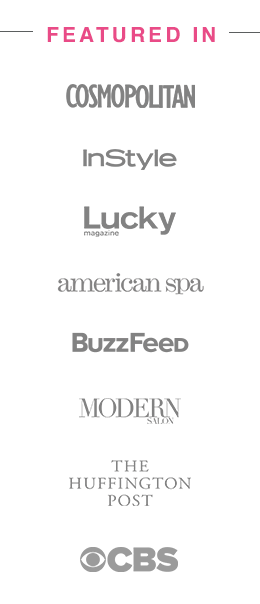
Recent Posts
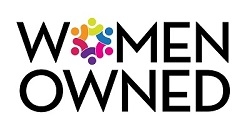
Are You Taking the Right Steps to Care for Your Skin?
Take the Quiz
Skincare Secrets!
10-step guide for healthy, beautiful skin after kids.
100% privacy. I will never spam you!















